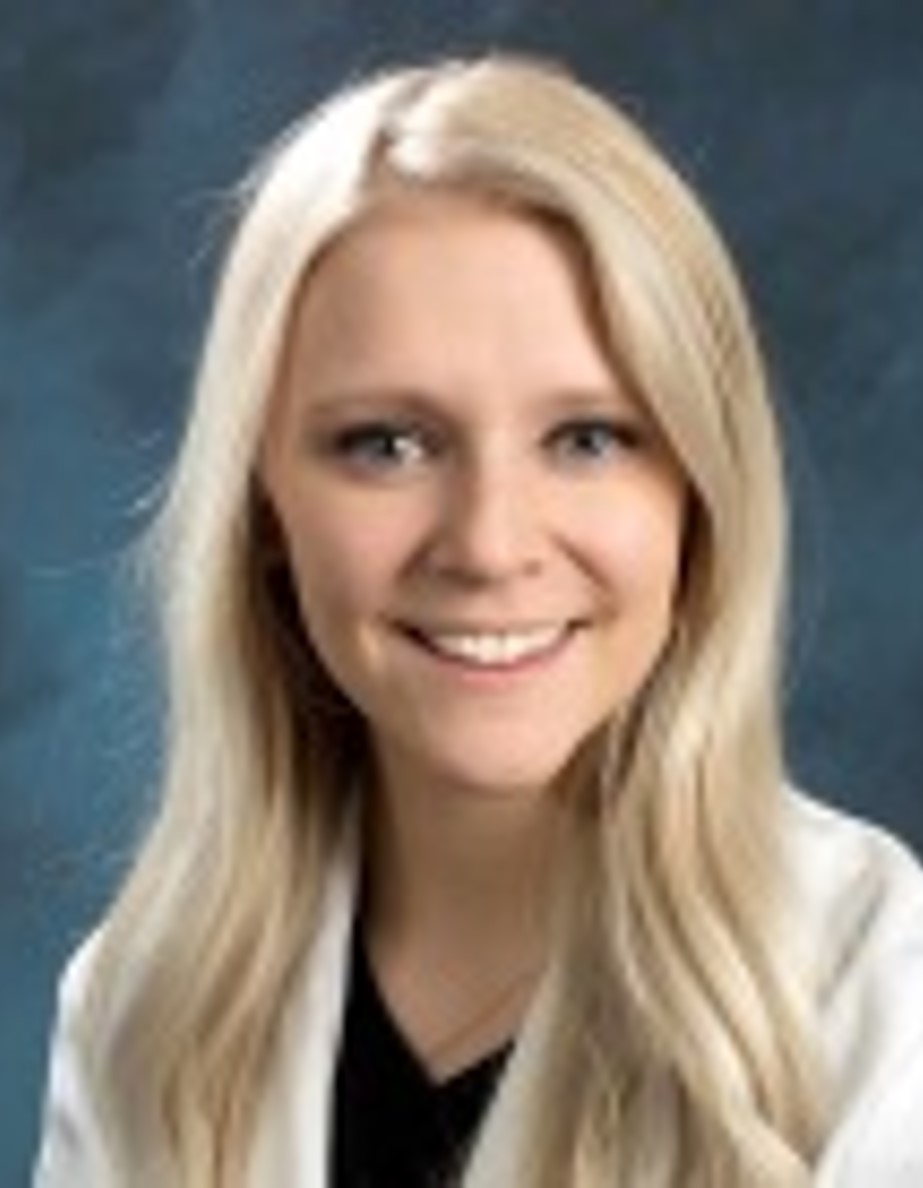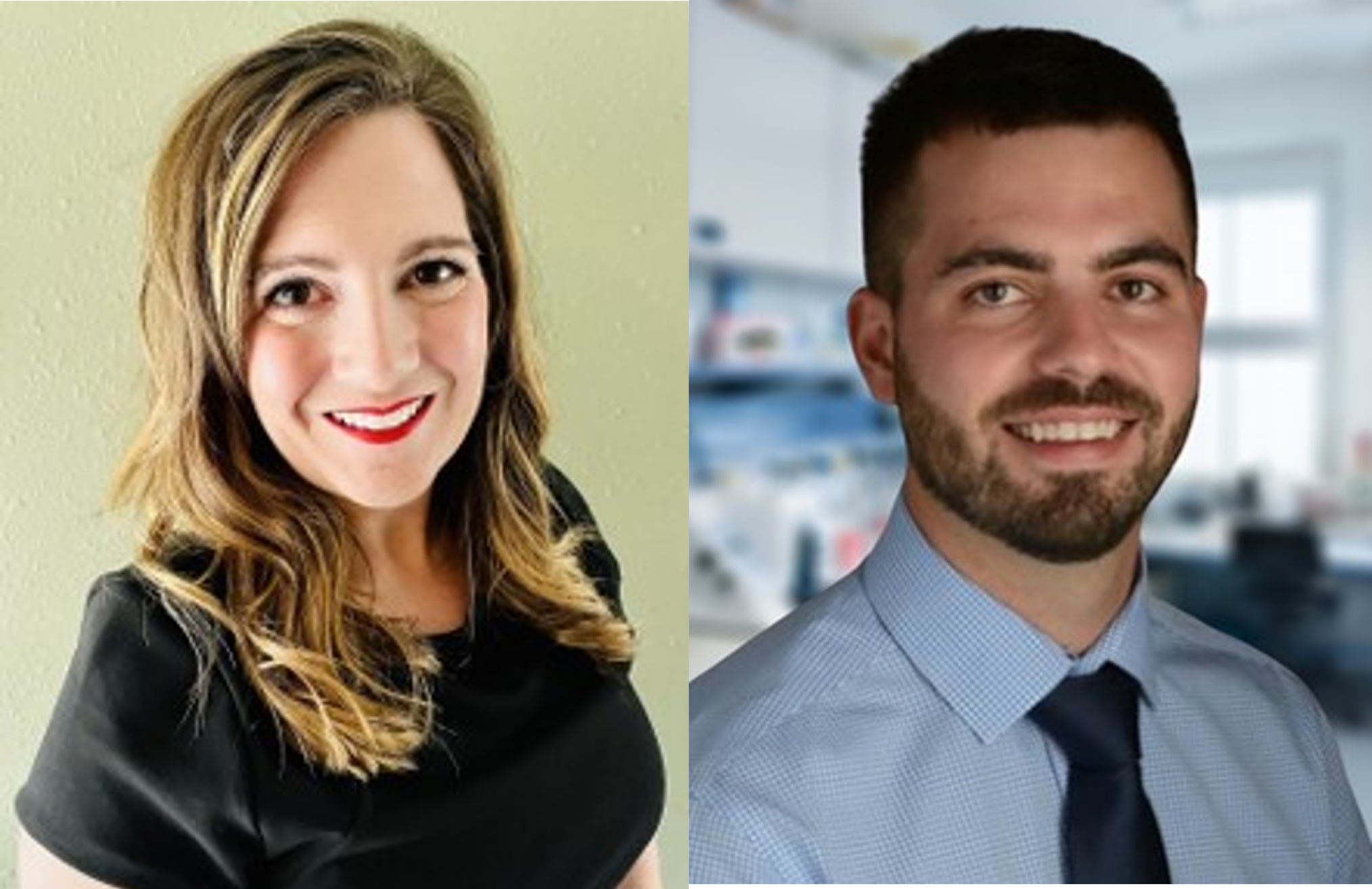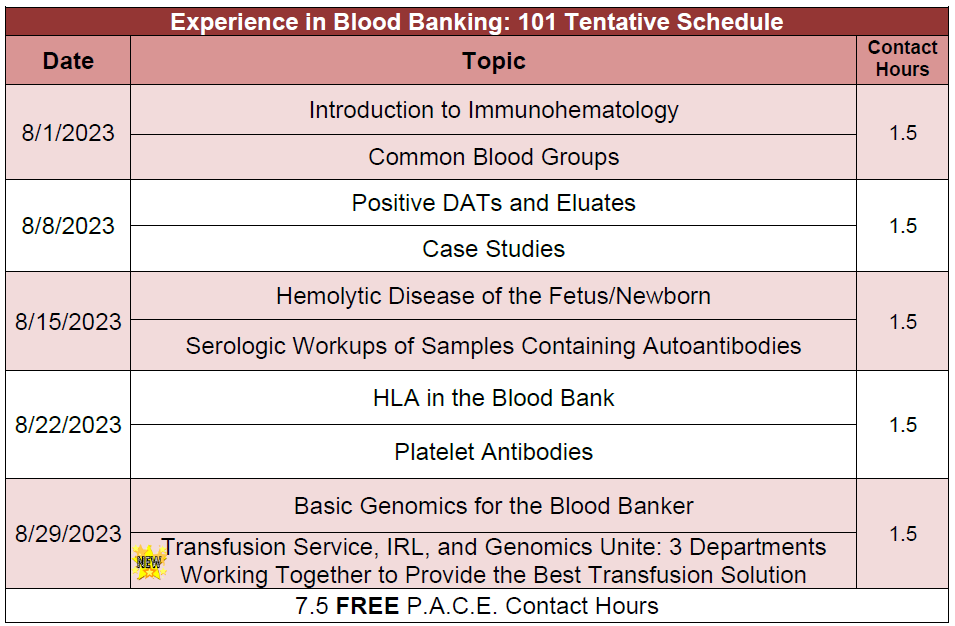2023 EBB:101 – Program Information
August 1, 2023

Presentation: Introduction to Immunohematology
Presenter: Hannah Wright, BA & Megan Dupont, MLS(ASCP)SBB
Objectives:
- Compare and contrast common reagents and testing methodologies.
- Describe common tests performed in the blood bank.
- Explain the process of antibody identification.

Presentation: Common Blood Groups
Presenter: Holly Kleehammer, MLS(ASCP)
Objectives:
- Define characteristics of common blood group antigens and antibodies.
- Determine the clinical significance of antibodies to common blood group antigens.
- Select appropriate units for transfusion in case scenarios.
Level of Instruction: Basic
P.A.C.E. Contact Hours: 1.5
August 8, 2023

Presentation: Positive DATs and Eluates
Presenter: Brad Pfaltzgraff, MS, MLS(ASCP), MB(ASCP)
Objectives:
- Describe how to detect and identify antibodies bound to red cells.
- List reasons a patient might have a positive direct antiglobulin test (DAT).
- Discuss how the results of eluate testing can help to determine the cause of a positive DAT.

Presentation: Case Studies
Presenter: Lynsi Rahorst, MHPE, MLS(ASCP)SBB
Objectives:
- Recognize ABO discrepancies and list test methods used in resolution.
- Discuss strategies involved in antibody identification.
- Select appropriate units for transfusion.
Level of Instruction: Basic
P.A.C.E. Contact Hours: 1.5
August 15, 2023

Presentation: Hemolytic Disease of the Fetus/Newborn
Presenter: Louis Kohler, MLS(ASCP)SBB
Objectives:
- Define hemolytic disease of the fetus/newborn (HDFN).
- Discuss the blood bank’s role in investigation, management, and treatment of HDFN.
- Select appropriate units for transfusion of mom, fetus, and neonate.

Presentation: Serologic Workups of Samples Containing Autoantibodies
Presenter: Gina Folk, MSHS, MLS(ASCP)SBB
Objectives:
- Discuss reactivity patterns and serologic methods utilized in cases of autoantibodies.
- Compare and contrast autoadsorption and alloadsorption.
- Discuss options for selecting blood for transfusion in patients with autoantibodies.
Level of Instruction: Basic
P.A.C.E. Contact Hours: 1.5
August 22, 2023

Presentation: HLA in the Blood Bank
Presenter: Taylor Costello, MS, MLS(ASCP)SBB
Objectives:
- Define HLA and discuss how HLA antibodies may interfere with red cell antibody identification.
- Discuss how HLA antibodies affect platelet refractoriness.
- Describe transfusion reactions that are associated with the HLA system.

Presentation: Platelet Antibodies
Presenter: Kelly Winkhart, BB(ASCP)SBB
Objectives:
- Discuss antigens that are expressed on platelets and the implications of corresponding antibodies.
- List and describe the tests performed in the identification of platelet antibodies at Community Blood Center.
- Describe applications of platelet antibody testing.
Level of Instruction: Basic
P.A.C.E. Contact Hours: 1.5
August 29, 2023

Presentation: Basic Genomics for the Blood Banker
Presenter: Gabby Cooper, MLS(ASCP)
Objectives:
- Describe the methodology of the Human Erythrocyte Assay (HEA) and the blood group antigen information it provides.
- Discuss cases in which a genotype is advantageous over a serologic phenotype.
- Explain how genomic testing provides additional clinically relevant information in patient scenarios.

Presentation: Transfusion Service, IRL & Genomics Unite: 3 Departments Working Together to Provide the Best Transfusion Solution
Presenters: Megan Dupont, MLS(ASCP)SBB & Brad Pfaltzgraff, MS, MLS(ASCP), MB(ASCP)
Objectives:
- Describe how serology and genotype results may be used to provide units for transfusion for patients receiving monoclonal antibody therapy.
- Describe scenarios where serology and genotype results may be used in combination to select the most appropriate units for transfusion for patients with RH variant alleles.
- Discuss strategies involved in the identification of an antibody to a high prevalence antigen.
Level of Instruction: Basic
P.A.C.E. Contact Hours: 1.5
